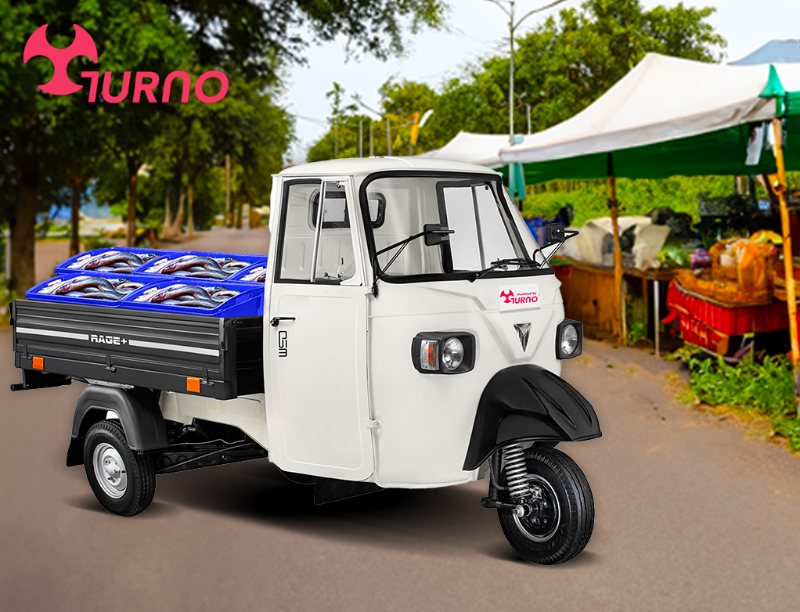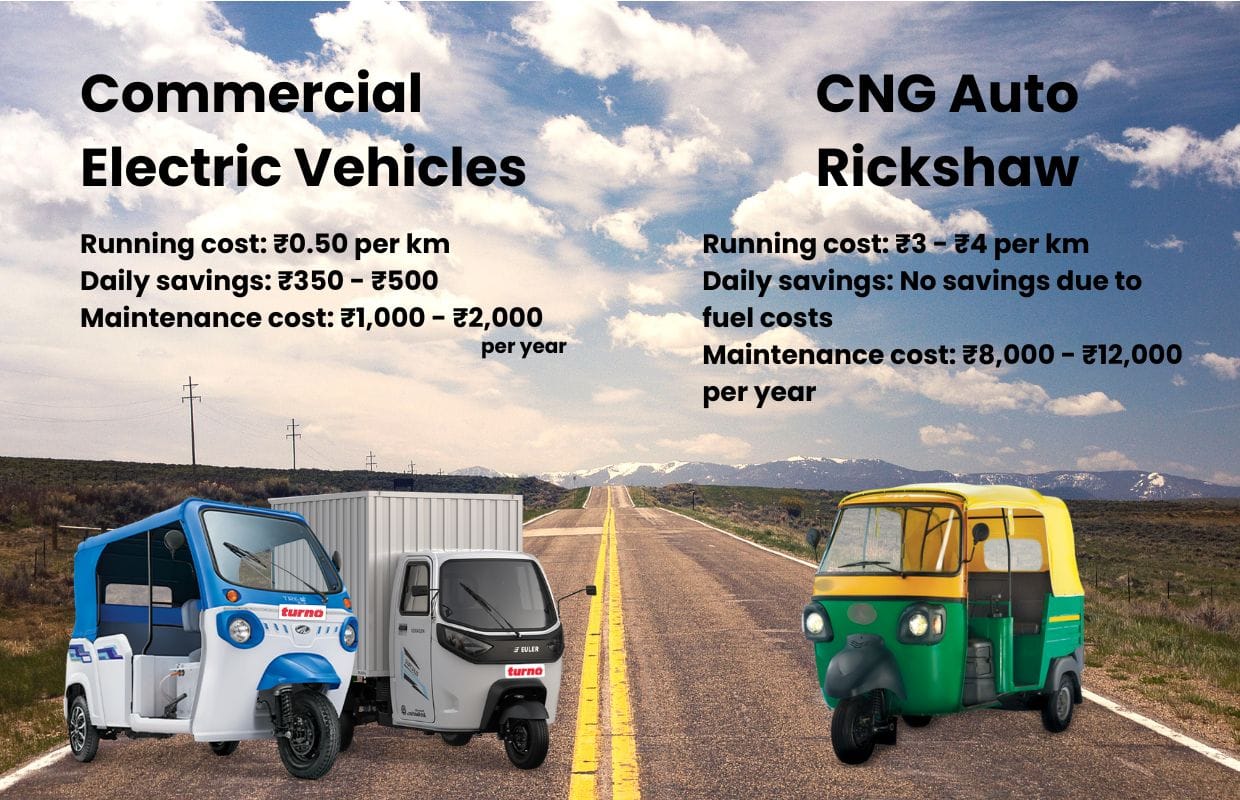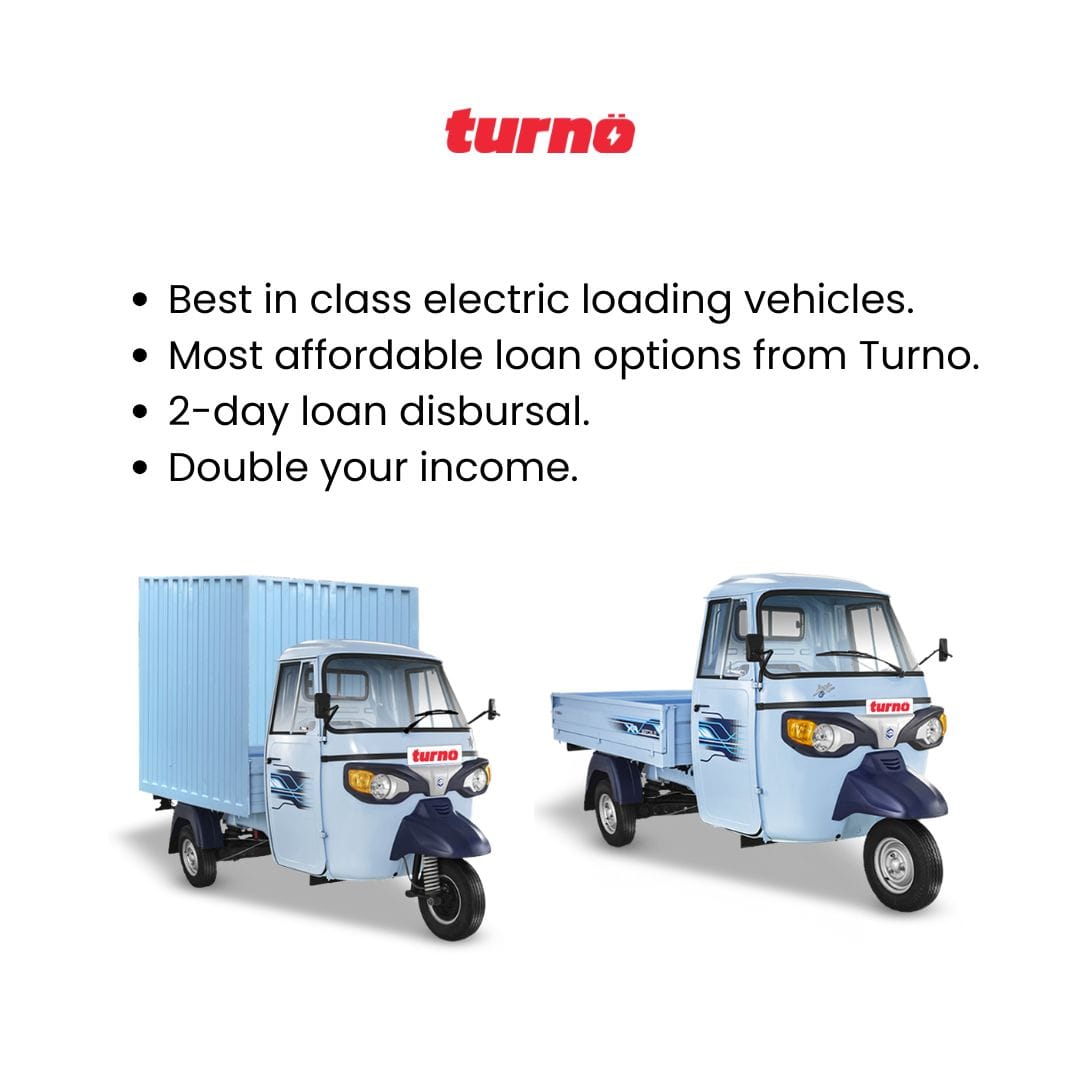In the dynamic landscape of modern delivery services, the choice between using 2-wheeler bikes and
Contents
- Advantages of 2-Wheeler Bikes:
- Advantages of 3-Wheeler Electric Cargo Vehicles:
- Considerations for 3-Wheeler Electric Cargo Vehicles:
- 3-Wheeler Electric Cargo Vehicles: Efficient and Convenient
- Enhanced Convenience and Weather Protection:
- Weather Protection and Security:
- Environmental Sustainability:
- Economic Efficiency:
- Conclusion:
3-wheeler electric cargo vehicles is a critical decision that significantly impacts operational efficiency, cost-effectiveness, and environmental sustainability. While both options offer unique advantages, understanding their differences can help businesses optimise their delivery strategies. In this blog, we'll discuss the benefits and considerations of each approach to help you make an informed decision for your delivery fleet.

Advantages of 2-Wheeler Bikes
Considerations for 2-Wheeler Bikes:
Advantages of 3-Wheeler Electric Cargo Vehicles
Considerations for 3-Wheeler Electric Cargo Vehicles:
3-Wheeler Electric Cargo Vehicles: Efficient and Convenient
Efficiency and Capacity:
3-wheeler electric cargo vehicles offer an advantage in terms of efficiency and capacity. Their higher payload capacity allows businesses to deliver larger and bulkier items in a single trip, reducing the need for multiple deliveries. This not only saves time but also optimizes fuel and labor costs. The stability provided by the third wheel enhances safety during stops and starts, making them suitable for transporting fragile or sensitive goods.
Enhanced Convenience and Weather Protection:
Three-wheeler electric cargo vehicles (EVs) present numerous advantages over their two-wheeler counterparts, notably in terms of heightened convenience and superior weather protection. The inherent stability and ease of handling of three-wheeler EVs make them a preferable option for longer-distance deliveries, ensuring a smoother and more comfortable ride. With a larger cargo capacity, these vehicles can efficiently transport greater quantities of goods per trip, optimizing operational efficiency.
Weather Protection and Security:
Three-wheeler EVs are typically designed with an enclosed or semi-enclosed structure, which lends itself to superior weather protection. This is especially valuable in regions like India, where unpredictable weather conditions can impact deliveries. The enclosed design not only shields the driver from the elements but also safeguards the transported cargo. Such comprehensive protection is particularly crucial for businesses dealing with valuable or sensitive goods, minimizing the risk of damage during transit and enhancing security against theft.
Environmental Sustainability:
Electric cargo vehicles stand as a sustainable transport alternative that significantly reduces the environmental footprint of businesses. Operating on electric power, these vehicles emit zero pollutants, mitigating air pollution and contributing to the reduction of greenhouse gas emissions. This aligns seamlessly with sustainability targets and addresses the expectations of environmentally conscious consumers. Furthermore, electric cargo vehicles operate quietly and efficiently, making them an optimal choice for urban areas where concerns over noise pollution and traffic congestion are paramount.
Economic Efficiency:
Electric cargo vehicles provide economic benefits beyond their environmental advantages. They help businesses save money by eliminating fuel expenses and reducing maintenance costs. This financial advantage, coupled with the positive environmental impact, positions electric cargo vehicles as a prudent investment for businesses looking to improve their bottom line while embracing sustainable practices. As the demand for eco-friendly transportation solutions grows, the appeal and viability of electric cargo vehicles continue to expand, making them a logical choice for businesses aiming to curtail their environmental impact and achieve long-term savings.
Conclusion
While both 2-wheeler bikes and 3-wheeler electric cargo vehicles have their merits, the latter offers enhanced efficiency, capacity, and convenience for modern delivery operations. With greater payload capacity, stability, weather protection, and alignment with environmental sustainability, 3-wheeler electric cargo vehicles emerge as the more efficient and convenient mode of transport for businesses seeking to streamline their delivery services. The decision ultimately hinges on a careful evaluation of your unique delivery needs, operational considerations, and long-term objectives.




